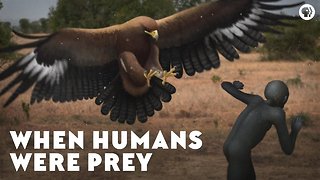Can Humans Consume Predators
Source: 'Trust Me Bro'
or
Bear Information:
https://www.petersenshunting.com/editorial/steven-rinella-the-bear-facts-on-trichinosis/273460
Wolf Information:
https://foodcreeks.com/can-you-eat-wolf-meat/
Shark Information:
https://www.seeker.com/mercury-levels-off-the-chart-in-some-shark-meat-1768635121.html
First, we start by defining what is meat, the types of meat, and the sources of meat, then we see where wolf meat falls.
What is meat?
Meat can be said to be edible animal flesh that is eaten as food, including not only the muscles and fat but also the tendons and ligaments.
Types of Meat
Here are the three main types of meat that are available and every other meat that falls into this category even wolf meat;
Red meat for example (Beef, Goat, Lamb, etc.).
White meat for example (Chicken, Turkey, etc.).
Seafood for example (some Fish, Crab, Lobster, etc.).
What type of meat is wolf meat?
The definition of red meat is any meat that is red when raw and dark when cooked or processed, and since wolf meat appears to be red when raw and dark when cooked, it is 100% correct to say that wolf meat belongs to the red meat category.
So, Can You Eat Wolf Meat?
Yes, you can eat wolf meat because wolf meat contains protein, minerals, and vitamins just like every other red meat, however, because wolves live in the jungles and forests, they carry lots of diseases like tapeworms, roundworms, Lyme disease, therefore you must properly cook or process the wolf meat before you can say it is safe to eat the meat.
Wolf meat has a very strong aroma because it is made up of muscles and less body fat, and after cooking, 50% of the time the meat is tough.
Bear meat is Considered Red meat and again highly edible and can be quite delicious depending on what the bear's been eating (Blueberries) and how it's been handled. But before you start messing around with bear meat you need to consider the risks one of those is trichinosis. It's a disease caused by infection of larvae from a type of parasitic round worm known as Trichina spiralis. The worm is the reason why you're traditionally supposed to cook your pork to well done, though trichinosis has been largely eradicated from domestic pork. Nowadays, over 90% of U.S. trichinosis cases are attributable to bear meat, though even that number is relatively small and usually includes far fewer people than your average high school classroom. Other known vectors of the disease in recent decades have included mountain lion, wild boar, and even walrus.
Animals contract trichinosis in the same way that humans do, through the consumption of flesh that is infected with the worms. Domestic pork used to carry trichinosis largely because of the practice of feeding them uncooked garbage; rats and mice in the garbage were consumed raw along with the trash and the rodents passed along the disease. In 1980, uncooked garbage was banned as pork feed; since then, cases of trichinosis in pork have all but vanished.
Bears, obviously, have not gotten this memo. They still eat whatever they please. In many areas, it's basically just a matter of time before an individual bear eats something and picks up the worm. In Montana's Lincoln and Sanders Counties, 100% of bears over six years of age have tested positive for the parasite.
A sharp dietary warning emerged from the Sharks International Conference taking place in Durban, South Africa, reported: 'According to a presenter at the gathering, eating shark meat could kill you.'
Southern Cross University researcher Jann Gilbert said that in three species of shark mercury and arsenic levels were found to be well above those considered safe by Australia and New Zealand's Food Standards Authority.
-
 9:21
9:21
PBS_Eons
5 years agoWhen Humans Were Prey
37 -
 1:13:10
1:13:10
Samhain13 Gaming
1 year ago $0.06 earnedKILLING PREDATORS
83 -
 30:11
30:11
RoanokeGaming
4 months ago $0.40 earnedThe HUMAN CONSUMING CRITTERS SPECIES Evolutionary Biology Explained
2.97K2 -
 17:25
17:25
Grumpy Acres Farm
2 years agoPredators Have Been Eating Our Flock!!!
211 -
 4:44
4:44
The Joe Rogan Experience Podcast
11 months agoTsavo Man-Eaters: The Lions Who Hunted Humans
7.79K2 -
 30:56
30:56
CarnivoreBetterLife
5 months agoDo People Thrive On The Carnivore Diet - Carnivore Better Life
257 -
 1:17
1:17
chadwarren1976
8 months agoShould carnivores consider cannibalism?
512 -
 4:24
4:24
Jerry Brazie
1 year agoPlants Are the Predators and Humans Are the Prey!
16 -
 19:10
19:10
TheRealTruthAboutHealth
1 year agoWhy Humans Were Actually Not Meant To Eat Meat
61 -
 2:28
2:28
Deer In Nature
3 years agoLots to Eat In Nature
36